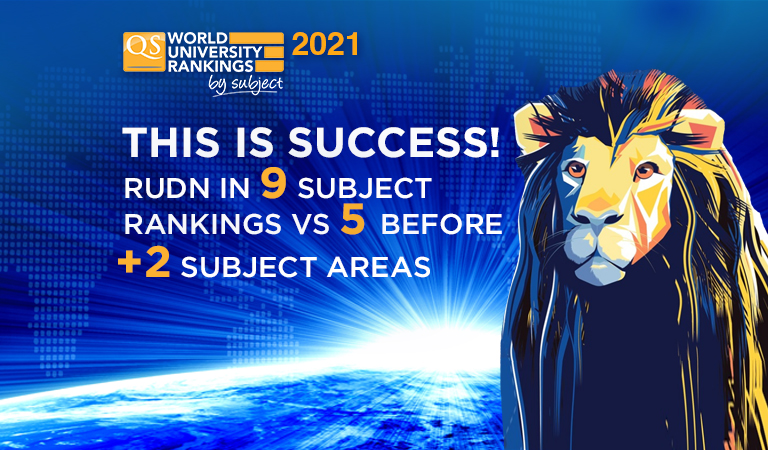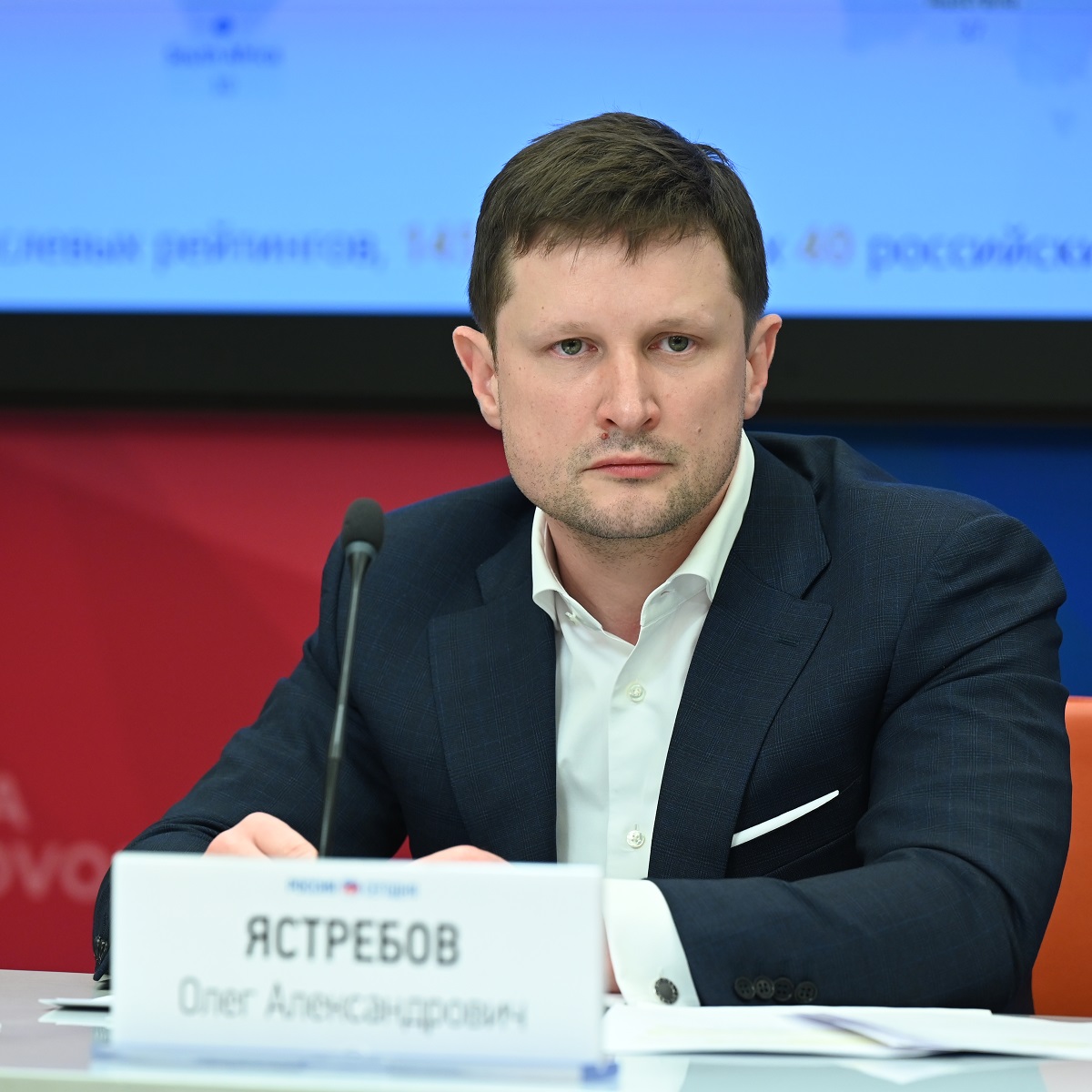RUDN University’s new successes in the field of modern languages, law, oil and gas business, and computer science ... The university strengthens its position in 11 QS rankings

Rapid growth
- 88th place — Modern languages
- 101-150 place — Linguistics
- 201-250 place — Mathematics
- 351-400 place — Economics and Econometrics
- 501-550 place — Chemistry
First time in the ranking
- 101-150 place — Oil and Gas Business
- 151-200 place — Law
- 451-500 place — Business and Management
- 451-500 place — Computer Science
Branch rankings
- Arts & Humanities — 245 place (vs 345 place in 2020)
- Social Sciences & Management — 256 place (vs 401-450 place in 2020)
Last year, RUDN University was in 5 subject and 2 branch rankings. We have improved our positions in all areas and achieved recognition in 4 more subjects.
“I would like to thank the entire RUDN University staff for their success in the QS subject rankings. Last year, RUDN University was presented in five subject rankings — ‘Modern Languages’, ‘Linguistics’, ‘Economics and Econometrics’ ‘Mathematics’ and ‘Chemistry’. In all these rankings, we have moved forward, and also achieved recognition in four new subject areas — ‘Oil and Gas Business’, ‘Law’, ‘Business and Management’, and ‘Computer Science’. RUDN University showed the best result in the subject ranking ‘Modern Languages’ — for the first time we entered the top 100. I would also like to thank our chemists who provided the basic scientometric indicators for becoming one of the best universities in the oil and gas business. I am also very pleased that the university immediately got into the top 200 of the ranking in Law,” said Oleg Yastrebov, Rector of RUDN University.
The best result of RUDN University is in Modern Languages. RUDN University is in the top 100 of the world. In particular, this happened due to the fact that the number of votes of academic experts doubled over the year. Linguists from the Peoples’ Friendship University of Russia were voted for from European countries, India and China. RUDN University received the votes of employers from Germany and South Korea for the first time. Advances in science are also noticeable — for example, our specialized journals have become better indexed in international databases. The Russian Journal of Linguistics has already moved up to the second quartile of the Scopus database. Another RUDN journal, Rusistika (Russian Studies), has been included in the Scopus list. RUDN University linguists have relied on interdisciplinarity — they conducted research at the intersection of linguistics, pedagogy, social psychology, migration and urban studies. There are also flagship projects for the study of languages in a minority situation, including migrants’ situations
Sergey Ivanov, a scientist from St. Petersburg, became the first winner of the RUDN University International Prize for scientific achievements and merits in the field of mathematics in the amount of 5 million rubles.
Egyptian scientist Abdelraouf Masoud Ali, associate professor at the Department of Environmental Management, Institute of Environmental Engineering, has been awarded the 2024 Egyptian State Incentive Prize in Agricultural Sciences.
Inventors from 26 countries and 35 regions of Russia presented more than 500 projects at the XVIII Moscow International Salon of Inventions and Innovative Technologies “Archimedes”. 340 projects belong to Russian participants, and their foreign colleagues — 215. RUDN University initiatives were awarded two gold medals.
Sergey Ivanov, a scientist from St. Petersburg, became the first winner of the RUDN University International Prize for scientific achievements and merits in the field of mathematics in the amount of 5 million rubles.
Egyptian scientist Abdelraouf Masoud Ali, associate professor at the Department of Environmental Management, Institute of Environmental Engineering, has been awarded the 2024 Egyptian State Incentive Prize in Agricultural Sciences.
Inventors from 26 countries and 35 regions of Russia presented more than 500 projects at the XVIII Moscow International Salon of Inventions and Innovative Technologies “Archimedes”. 340 projects belong to Russian participants, and their foreign colleagues — 215. RUDN University initiatives were awarded two gold medals.
